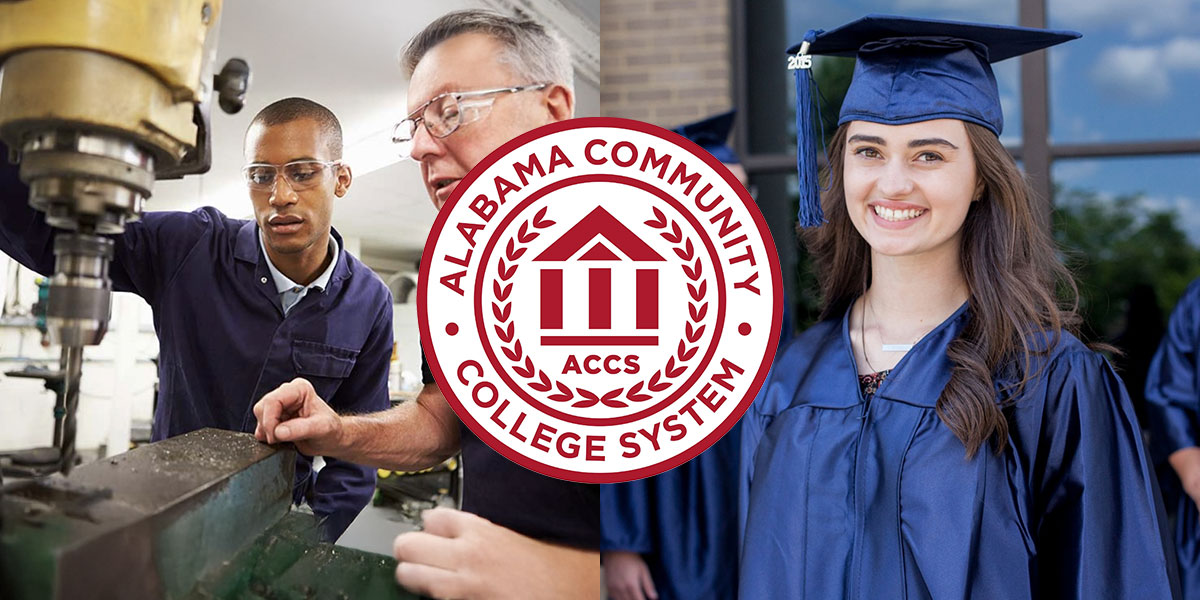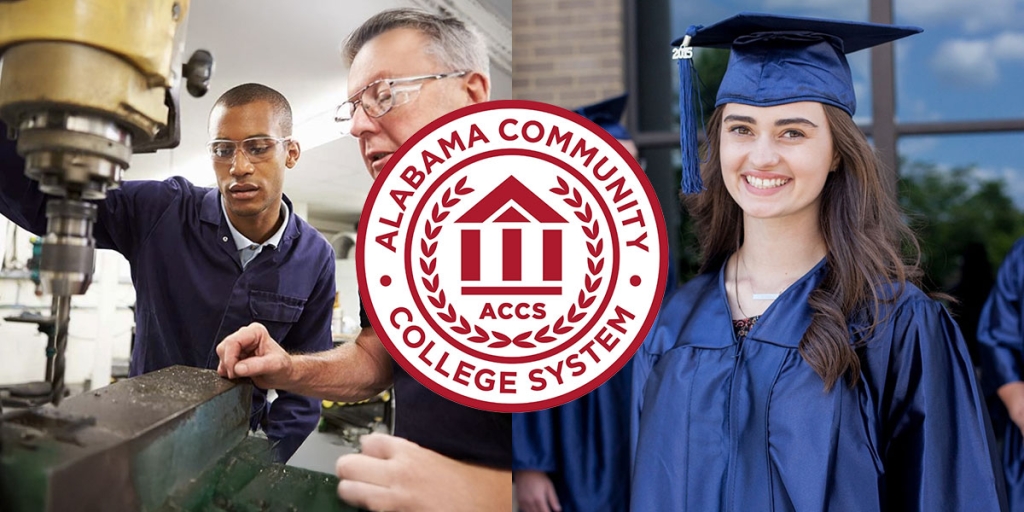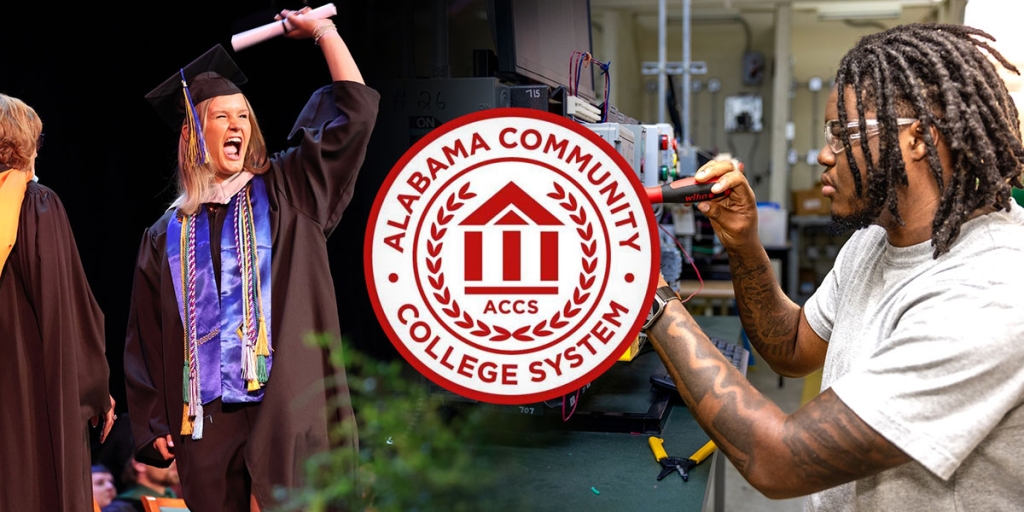From high school graduates exploring their next steps to working adults ready for a career change, students across Alabama are turning to their local community colleges to take that next step forward. The Alabama Community College System (ACCS) offers a wide range of education and training options designed to meet learners where they are.
With 24 colleges and more than 130 locations statewide, ACCS delivers high-quality, affordable, and accessible programs that serve all types of students. Whether you’re entering the workforce, looking to gain a new skill, or planning to earn a degree, there’s a pathway for you.
One of the first decisions students often face is choosing between credit and non-credit courses. Both lead to meaningful opportunities, but they’re structured differently depending on your goals, schedule, and the type of work you want to pursue.
Deciding what’s right for you
Before choosing a path, it’s helpful to understand how credit and non-credit courses are structured—and what each is designed to achieve.
Dr. Natalie Thornton, Executive Director of Career and Technical Education, explains the distinction. “The main difference between credit and non-credit courses is the time commitment,” Thornton says. “Non-credit training is typically shorter and more basic, making it a great option for short-term skill development.
In contrast, for-credit courses follow a semester-based schedule and require a minimum number of instructional hours, even when offered in a condensed format.”
Put simply: credit courses are part of a formal academic track that leads to a certificate or degree, while non-credit courses offer fast, flexible skills training for specific careers and can lead to recognized industry certifications—without the long-term classroom commitment.
Non-Credit: Fast, focused, and career-ready
Non-credit programs are accelerated learning opportunities designed for individuals looking to get to work quickly.
These courses don’t count toward a college degree, but they do provide hands-on training in high-demand fields like manufacturing, healthcare, hospitality, construction, fiber optics, and commercial driving. Most lead to industry-recognized certifications that boost employability and earning potential.
Julie Frizzell, Chief of Operations for the ACCS Innovation Center, explains the primary goal of these programs. “Non-credit programs are designed for individuals pursuing careers that don’t require a two- or four-year degree, often in skilled trades or high-demand fields,” she says.
“The goal is to offer accessible, streamlined training that equips people with the skills they need to land better-paying jobs, transition into new careers, or upskill in their current industry. These programs are built to be fast, flexible, and standardized across the state, giving individuals more options and a clear path forward.”
A standout example is the Skills for Success program, which offers no-cost, short-term training aligned with workforce needs.
According to Houston Blackwood, Workforce Director for the ACCS Innovation Center, the three most popular Skills for Success programs right now are CDL Class A, CDL Class B, and Fiber Optic Technician & Installer—courses that quickly prepare students for jobs that are both stable and well-paying. The Fiber Optics program, in particular, has become a standout offering, with over 1,300 students earning industry-recognized certification in less than three years.
Frizzell emphasizes that the value of non-credit programs shouldn’t be underestimated. “Non-credit training absolutely counts—and often leads to higher-paying jobs than some careers that require a two- or four-year degree,” she says.
“Skills for Success programs like Motor Grader Operator, Water Operator, and Fiber Optic Technician prepare people for essential roles that keep our communities running. These careers offer strong wages, stability, and purpose—proof that hands-on skills training can be just as valuable as a traditional academic path.”
For many Alabamians, non-credit programs further education opportunities along a career pathway and offer a clear route to employment, financial independence, and meaningful, in-demand work.
Credit: Structured, stackable, and degree-building
Credit courses through the Alabama Community College System (ACCS) offer a powerful, flexible path to long-term success.
With 24 colleges and more than 130 locations statewide, the ACCS makes it easy for students to start smart and stay on track—whether you’re fresh out of high school, working full-time, or reentering the classroom after years away. The system is built to serve real students with real lives, offering morning, evening, weekend, and online classes that fit any schedule.
Credit programs are part of a traditional academic track that leads to certificates, associate degrees, and seamless transfer opportunities to four-year universities. Students can begin or complete the first half of a bachelor’s degree affordably while keeping more money in their pockets.
Many students also choose credit programs for targeted, career-focused training. With 288 different program options across fields like healthcare, business, manufacturing, education, and technology, there’s a place for everyone at Alabama’s community colleges. From university prep to technical training, and everything in between, the ACCS offers a smart start for every learner.
These programs are stackable and designed with student success in mind. You can begin with a short-term certificate and build toward a more advanced certificate or credential at your own pace.
And because the ACCS offers top-quality education from accomplished instructors at less than half the cost of most four-year institutions, students graduate sooner, with less debt, and are ready to move toward their next goal—whether that’s transferring to a university or entering the workforce.
Whether you’re aiming to become a registered nurse, cybersecurity specialist, teacher, or entrepreneur, credit-bearing programs at Alabama’s community colleges offer the structure, support, and quality needed to make it happen. With small class sizes, flexible options, and a focus on both academic achievement and career readiness, the ACCS provides real life education that works for you.
Whether you’re eager to launch a new career quickly or planning to pursue a college degree, Alabama’s community colleges offer a pathway designed with your goals in mind.
Non-credit programs provide fast, hands-on training for in-demand jobs, while credit-bearing programs deliver the academic foundation and flexibility needed to build a long-term career. Both options are accessible, affordable, and focused on real-world results.
At ACCS, there’s no one-size-fits-all approach—just the right fit for every learner, every schedule, and every future.
To learn more, visit www.alabama.edu explore free short-term training opportunities through Skills for Success.










